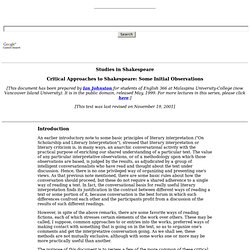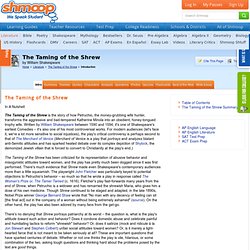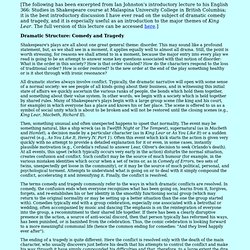

Essays - Appreciate Shakespeare. From philosophy to literature to learning a new language, Humanities 360 is a veritable fountain of knowledge on everything you’d like to know about the humanities.

Resources for every level of writing Here at Helium Publishing, we pride ourselves on knowing a thing or two about writing. We are, after all, one of the largest online writer communities. So where better to look for all of your writing needs? Feeling writer’s block creeping up? The grand world of poetry and literature There’s nothing quite like opening up a great piece of literature. Journeying across time and history If the old adage is true that history is bound to repeat itself, then find out what’s coming by boning up on what’s already happened. Learning new languages The intricacies of learning a new language can leave you tongue-tied, but in our Languages section, you can find out language learning tips, and discover the origins of new words you encounter.
Shakespeare Resource Center. Approaches to Shakespeare. Custom Search Studies in Shakespeare Critical Approaches to Shakespeare: Some Initial Observations [This document has been prepared by Ian Johnston for students of English 366 at Malaspina University-College (now Vancouver Island University).

It is in the public domain, released May, 1999. For more lectures in this series, please click here.] [This text was last revised on November 19, 2001] Introduction An earlier introductory note to some basic principles of literary interpretation ("On Scholarship and Literary Interpretation"), stressed that literary interpretation or literary criticism is, in many ways, an anarchic conversational activity with the practical purpose of enriching our shared understanding of a particular text. However, in spite of the above remarks, there are some favorite ways of reading fictions, each of which stresses certain elements of the work over others.
The Challenge of Shakespeare's Work The Approach Through Character Analysis The Approach Through Thematic Analysis. The Taming of the Shrew. The Taming of the Shrew is the story of how Petruchio, the money-grubbing wife hunter, transforms the aggressive and bad-tempered Katherine Minola into an obedient, honey-tongued trophy wife.

Written by William Shakespeare between 1590 and 1594, it's one of Shakespeare's earliest Comedies – it's also one of his most controversial works. For modern audiences (let's face it, we're a lot more sensitive to social injustices), the play's critical controversy is perhaps second to that of The Merchant of Venice (Merchant of Venice is a play that portrays and analyzes blatant anti-Semitic attitudes and has sparked heated debate over its complex depiction of Shylock, the demonized Jewish villain that is forced to convert to Christianity at the play's end.) The Taming of the Shrew has been criticized for its representation of abusive behavior and misogynistic attitudes toward women, and the play has pretty much been dogged since it was first performed. BBC Shakespeare Animated Tales - The Taming of the Shrew - Part 2.
BBC Shakespeare Animated Tales - The Taming of the Shrew - Part 1. In Shakespeare's footsteps. BardCast: The Shakespeare Podcast. Ian Johnston, "Dramatic Structure: Comedy and Tragedy" [The following has been excerpted from Ian Johnston's introductory lecture to his English 366: Studies in Shakespeare course at Malaspina University College in British Columbia; it is the best introductory discussion I have ever read on the subject of dramatic comedy and tragedy, and it is especially useful as an introduction to the major themes of King Lear.

The full version of this lecture can be accessed here.] Dramatic Structure: Comedy and Tragedy Shakespeare's plays are all about one great general theme: disorder. This may sound like a profound statement, but, as we shall see in a moment, it applies equally well to almost all drama. Still, the point is worth stressing, for reasons we shall attend to in a moment, because the major entry into every play we read is going to be an attempt to answer some key questions associated with that notion of disorder: What is the order in this society? All dramatic stories always involve conflict. The ending of a tragedy is quite different.